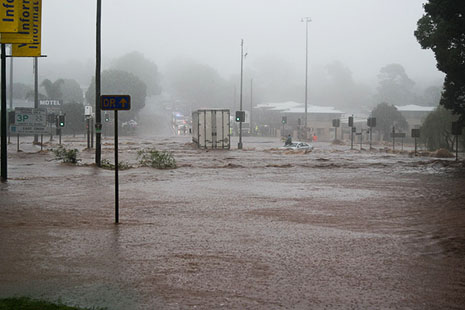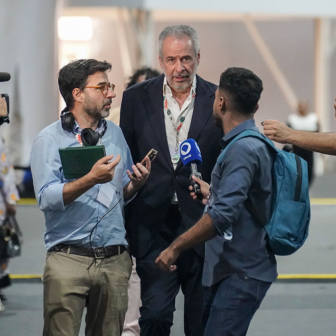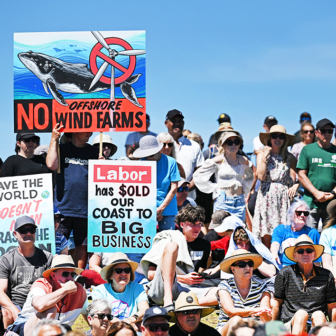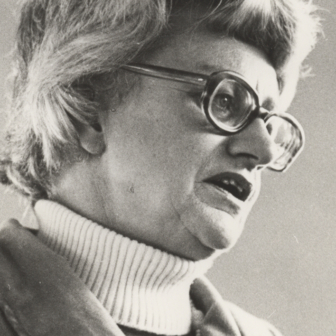“YOU wouldn’t think this could happen because it never happens, but it has happened,” said Peter Taylor, mayor of Toowoomba. “No one has planned or dreamed about rainfall of that intensity.” Queensland Police Commissioner Bob Atkinson provided journalists with the perfect tagline when he described the resulting flash flood that hit the town last Monday afternoon as an “instant inland tsunami.”
We’ve all seen the videos by now: a surging tide of brown water lifting cars off the road, taking them into a crocodile roll and tossing them about with what looked like wilful vandalism. The tsunami seemed to have a particular animus against cars: it left them upended, smashed against each other, crunched under bridges. Search and rescue teams the next day were trying to track down some 1800 of them.
But there was other traffic in the deluge. In one of the more whimsical episodes of that fatal afternoon, storm water surged through the windows of a furniture store, carried a sofa across the road, repossessed it in the backwash, then sent it out again with redoubled force so it burst into the souvenir shop opposite and sailed right through the store and out into the car park at the back.
“Surreal” is a word you hear a lot in conversations and commentaries. They used it twice on the Sunrise program on Thursday as they reported from beside the wreckage of central Brisbane. It’s been surreal around here for weeks, with rain falling constantly, the clouds down around our ears, frogs uniting in weird chorus at night, veils of white mist draped over the house in the morning.
The plumber, visiting us to fix a pathetically small leak, tells a story. His brother was heading towards Toowoomba from Brisbane in the ute on Monday afternoon. At the bottom of the range, the traffic came to a halt, and he saw there was water over the road. Several of the drivers got out, and had a brief consultation about whether to attempt the crossing. At that point, a fire engine came screaming down the range from the opposite direction, and an officer jumped to the ground, waving his arms.
“Go back,” he yelled. “Go back now.”
As the drivers scrambled to get their vehicles into reverse, there was a roaring noise, and they saw a tidal wave rolling towards them, carrying uprooted trees in a mighty tumbling front. The motorists saved their lives by backing off at sixty kilometres an hour.
THERE’s a scene in Macbeth where a forest advances, apparently with a will of its own, leaving its rightful place in the landscape in an uncanny act of relocation. In Shakespeare’s time, bizarre alterations to the natural order of things were interpreted as portents, signs of a change of such significance in the course of human events that nothing less than a transformation of consciousness would be required to deal with it.
You wouldn’t think this could happen because it never happens, but it has happened. And yet, why wouldn’t we think this could happen? There’s a peculiar resistance here to predictive forms of knowledge that have nothing to do with superstitious accounts of the world.
Toowoomba, known in its early years as “The Swamp,” is built in a cavity on the side of a volcano. The town is shaped like a bowl, with streets running up the rim on three sides. Huge open culverts allow large amounts of storm water to escape into the drains and be carried to the creeks that run through the centre. I live halfway up one of the steeper hill streets, and watching the downpour from an upstairs window, I could see that the whole road had become a stormwater course, several inches deep and gathering speed. Multiply that situation by ten or more, and you have a recipe for a high-speed collision of water streams in the centre of the town.
Turn the other way, towards the downward sweep of the range into the Lockyer Valley, and there is the logical potential for the disaster that hit Grantham, where people were stranded on the rooftops of their houses as an ocean swirled around them, reaching to the gutters.
My point is not to imply some kind of negligence on the part of local government and emergency services, which have clearly been stretched to the limit in a highly skilled and coordinated response. The problem is broader, more cultural, and more psychological. We don’t seem to want to acknowledge that natural conditions have changed. We are in a situation in which unprecedented weather events are to be expected, but we don’t expect them. A friend of mine who has lived in St Lucia since the late 1960s was saying in November that all the conditions were in place for a repeat of the 1974 floods. It wasn’t until about a week before this actually happened that the prospect was being seriously canvassed in the media.
The town of St George, which was in the headlines until the Toowoomba event occurred, has experienced a once-in-a-hundred-years flood two years running. Many people had rebuilt and redecorated houses since last year’s flood on the assumption that they’d be safe now for at least a couple of generations. Most of the people of Marysville in Victoria wanted to go back to the town after the Black Saturday bushfires of 2009. Return, rebuild, restart seems to be the overriding determination.
Reluctance to link the current train of floods to the climate change debate is understandable. This is not the time for debates of any kind, and especially on issues that are politically loaded. Discussion of the issue in general terms is fast becoming an irrelevance, as more and more of us are taken up with the task of living with its consequences. Carbon tax is chicken feed in the national or household budget, off the radar when everything we own may be swept away at a moment’s notice.
The scale of what has happened in Queensland means that planning for and responding to natural disasters will have to be managed according to radically altered parameters. In the coming weeks and months, the talk will be of recovery, but recovery can’t just mean exhausting ourselves and our resources in a cycle of repetition. We have to admit that we do know what can happen and that once-in-a-century weather extremes are now going to be more common.
Responding to this would mean an overhaul of the insurance industry, a revolution in the real estate culture (what price waterfront?) and new approaches to urban planning, housing design and ownership. Social infrastructure and community networks would become a primary investment, with a stronger focus on the local. The sense of surrealism is the dawning of a realisation that we’re facing a new reality. •




